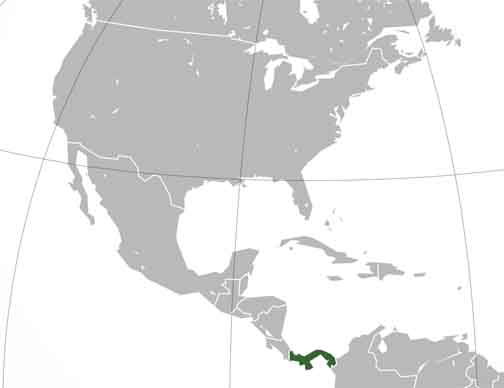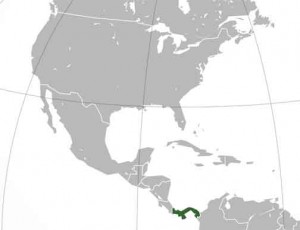Puerto Rico to benefit from U.S.-Panama trade pact


In 2011, the island’s exports to Panama exceeded $195 million, while imports were a little more than $10.2 million. U.S. goods exports to Panama in 2011 were $8.2 billion.
The U.S.‐Panama Trade Promotion Agreement, an initiative through which President Barack Obama seeks to increase opportunities for U.S. businesses, farmers, and workers through improved access for their products and services in foreign markets, takes effect Oct. 31.
The historic agreement is also expected to benefit Puerto Rico, which already has a steady commercial relationship with the Central American nation.
The U.S.‐Panama TPA is expected to increase U.S. exports to Panama by removing or reducing trade barriers in the Panamanian market and by leveling the tariff playing field. Ninety‐eight percent of Panama’s exports to the U.S. entered duty‐free in 2010, while fewer than 40 percent of U.S. goods entered Panama without tariffs, according to the Office of the U.S. Trade Representative.
For the island, the new trade agreement will build upon existing commercial ties. Through August 2012, Puerto Rico had exported more than $111.5 million in goods to Panama and imported some $6.8 million, according to data gathered by the Puerto Rico Statistics Institute.
In 2011, the island’s exports to Panama exceeded $195 million, while imports were a little more than $10.2 million, the agency’s data shows.
U.S. goods exports to Panama in 2011 were $8.2 billion.
In anticipation of the new scenario, Puerto Rico entrepreneurs — often backed by the government — have been preparing themselves for the better part of the last year to delve into Panama’s business circuit, through training and commercial missions.
Last year, a delegation of 14 local companies organized by Puerto Rico Trade participated in Panama’s Expocomer 2011 fair, generating nearly $5 million in immediate and future sales in the areas of technology, food, construction and renewable energy. Most recently, in March 2012, a group of engineers participated in a workshop to learn how to go about exporting their services to Panama, specifically to compete in the $5.25 billion Panama Canal expansion project.
Panama’s strategic location as a major shipping route and the massive project underway to expand the capacity of the Canal enhances the importance of the U.S.‐Panama TPA.
Another area that is expected to gain strength from the agreement is farming, as nearly half of current U.S. farm exports to Panama will become duty free immediately and most of the remaining tariffs will be eliminated within 15 years.
“The U.S.-Panama Trade Promotion Agreement enters into force next week, eliminating tariffs and other barriers to U.S. goods and services, promoting economic growth, and enhancing trade between the United States and Panama,” U.S. Agriculture Secretary Tom Vilsack said Monday.
“Last year, President Obama insisted that we get this agreement with Panama right-alongside pacts with South Korea and Colombia-forging a better deal for America’s workers and businesses that led to strong bipartisan support in both houses of Congress. Altogether, these agreements will bring an additional $2.2 billion in agricultural exports,” he said.
In 2011, the United States exported more than $504 million of agricultural products to Panama.











Hello and Good Day,
I write to you to warn you about the incompetence within the Office of the
Defense of the Treaty of the Republic
of Panama. This is the
office in Panama
that is to be the main force in the implementation of the TPA.
With a one sided investigation preformed by Alexis Pineda of MICI of Panama,
Alexis Pineda issued a Resolution stating that our legal investment in Panama
was not covered under the jurisdiction of the Bilateral Investment Treaty in which
the TPA is based on.
This MICI of Panama Resolution is allowing the continuing illegal expropriation
of the investment of US National Investors.
And because of this actions and the outright lies told to us by MICI Attorney
J. Vasquez, Alexis Pineda, and others we have given our Consent to
International Arbitration therefore Perfecting Consent to Arbitrate.
The US Nationals, James Falgout, Barbara Falgout, and Clarence Johnson of
Retire In Chiriqui S.A. are covered under the BIT and well within the
jurisdiction of Article I of and the 2000 Protocol amending Article VII of the
Bilateral Investment Treaty between Panama
and the USA.
Article I of the BIT
(d) “investment” means every kind of investment, owned or controlled
directly or indirectly
the proof of ownership and control from the Public Registry of Panama from the
year 2005 till present of the investment property holding of Barbara Falgout
and the the US National Investors James Falgout, Barbara Falgout, Clarence
Johnson, and their local company of RIC, S.A are within the jurisdiction of the
BIT.
2000 PROTOCOL AMENDING INVESTMENT TREATY WITH PANAMA
amending Article VII(5) of the 1982 Treaty (BIT) by replacing that paragraph
with the text set forth in Article I(2) of the Protocol. Amended Article VII(5)
provides that, for the purposes of Article 25(2)(b) of the ICSID convention and
Article VII of the 1982 Treaty, the nationality of a company in the host
country will be determined by ownership or control, rather than by place of
incorporation. This provision allows a company that is an investment covered by
the 1982 Treaty to bring a claim in its own name.
Be advise that this is a very incompetent office and this office has no idea
about the Bilateral Investment Treaty nor that of investor rights within the
BIT or TPA.
Please advise any investor of the pitfalls of investing in Panama and do not expect the support of the
Bilateral Investment Treaty or that of the TPA being enforced by Panama.
If you wish I can provide supporting material via email which includes letters
from our International Law Firms which MICI Alexis Pineda ignored which is a
violation of the BIT Argeed Minutes, Section 1, subsection j
(j) access to courts of justice, administrative tribunals and agencies, and the
right of employment of persons by nationals or companies of the other Party,
who otherwise qualify under applicable laws and regulations of the forum,
regardless of nationality, for the purpose of asserting claims and enforcing
rights, including those arising under the provisions of this Treaty, with
respect to their investment and associated activities.
I thank you for your time,
James Falgout